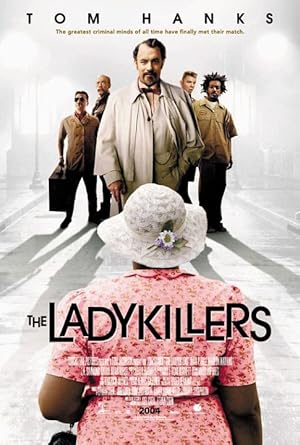My Little Eye

Scott Hardie: “It ruled.”
Horror movies with this kind of setup are a dime a dozen. While "My Little Eye" ultimately doesn't transcend its premise, it scores a lot of points for rising above it. This is an arthouse-dweller's horror film, excelling in unnecessary disciplines, especially the cinematography. While most of the shots are on grainy video in poor lighting on a small, redundant set, photographer Hubert Taczanowski and editor Marguerite Arnold find limitless possibilities with camera placement and sound synching, such as one fascinating sequence when one character is seemingly summoned by an off-camera orchestral. The cameras fit the plot and were probably chosen for budgetary reasons, but never do they feel like a crutch or a handicap; instead they liberate the film to try new things.
Another word about that set: It's a house especially built for the film, and it's clear how much careful planning went into the layout and appearance. This is not the kind of clean, orderly movie house that it seems like no one lives in, nor is it the kind of ultra-grungy nightmare house that one would live in (see "The Blair Witch Project"). Besides it looking plausibly like someplace these characters would have lived for six months, it functions so well for so many shots, especially the hallway shots and the window shots, that by the end we know it inside out; we know for instance what route one character would have to take to escape. That kind of achievement isn't unheard of, but I choose to mention it here.
The screenplay is the most interesting element, simultaneously the film's biggest strength and biggest weakness. It is a strength in the dialogue: Frequently fascinating, playful, and unexpectedly thoughtful, the conversations in this film almost always strike the precise note needed for the scene, tilting our loyalties from one character to the next as each one seizes control of the discussion. The premise is ridiculous when you think about it, but the dialogue never treats it as such; the characters are aware of the gaping holes in the logic of their predicament, sincerely kick themselves for getting into it, and then reasonably talk themselves into staying; this isn't the kind of horror movie where the victims only stay in the killer's presence because the plot requires them to do so. Sadly, the plot is the film's weakness, as it only truly appears in the third and final act, and by then is an unwelcome intruder. This film got by so well for so long on only its dialogue and intriguing photography that when the murders began in earnest and the film felt compelled to explain the truth behind the situation, I felt disappointed. Like Wendigo two years ago, it should have freed itself from the requirements of its genre and the need for exposition, and pursued a deeper truth than whodunit. (Another notable failure of the script is the character development, which is virtually nonexistent. Five characters were mentioned at the start, but two of them were so blank that I thought they were the same character for most of the film.)
This film isn't for everybody. Fans of traditional horror films may think it doesn't have enough exposition or action, while art film fans may agree with me that it had too much. And espite some inventiveness in the department, it's not an easy film at which to look, because of the nature of its photography. (Would you want to watch 90 minutes of webcam footage?) Still, I recommend it for most viewers, certainly those who still think there's potential in a slasher-amongst-us premise but have grown bored of the same-old. Don't be expecting a commentary on our voyeuristic culture (this film was written before "Big Brother" entered the world), but do expect an engaging thriller of above-average intelligence and some genuine chills.
− date unknown • more by Scott • log in or register to reply
Want to join the discussion? Log in or register to reply.
write your own review of My Little Eye
Other Movies from 2004

Eternal Sunshine of the Spotless Mind
Scott Hardie says, "It ruled." Go »
Sideways
Scott Hardie says, "It ruled." Go »
Outfoxed: Rupert Murdoch's War on Journalism
Scott Hardie says, "It ruled." Go »
The Ladykillers
Scott Hardie says, "It ruled." Go »
The Forgotten
Scott Hardie says, "It was ok." Go »










